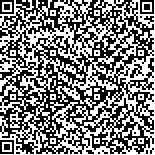|
| 摘要: |
| 我国910万hm2天然湖泊中,85%的湖泊出现了不同程度的富营养化。富营养化是由于湖泊中氮、磷等营养元素过度富集而导致水生生态失衡的异常现象,从环境角度看,这是一种灾害;但从资源角度看,却是一种不可多得的农业资源。该研究利用“生物浮岛”技术,在武汉沙湖进行了湖泊循环农业的试验,将30种陆生和湿生植物利用“生物浮岛”技术,通过“水上花园”、“水上菜园”、“水上草原”、“水上稻田”等农业形式转移到水面栽培。试验表明,27种植物生长良好,植物产量高于陆地,而且重金属和亚硝酸盐含量均远低于国家食品安全标准,可以作为绿色食品或安全饲料进入市场。生物浮岛水上农业可以变“污染”为“资源”,实现农业与环保双赢,具有很大的推广价值。 |
| 关键词: 湖泊 农业 研究 |
| DOI:10.7621/cjarrp.1005-9121.20070229 |
| 分类号:S-3 |
| 基金项目:科技部社会公益项目(编号:2005DIB4J061),全国农业资源区划办公室“湖泊循环农业”课题资助 |
|
| STUDIES ON AQUATIC AGRICULTURE EXPERIMENTS ON LAKES |
|
Li Zhaohua Lu Jindeng Ma Qingxin Zhang Shengshu
|
| Abstract: |
| Among 9.10 million hm2 of natural lakes in China,over nutrition of different degrees has occurred in 85 % of those lakes.It is an abnormal phenomena of aquatic ecology imbalance caused by over gathering of nitrogen,phosphorus,etc.nutritional elements in the lakes.It is a disaster from environment point of view,but they are rare agriculture resources from resources angle.The studies utilizes "Biological Floating Island" technology and conducts lake circling agriculture experiments on Sha Lake in Wuhan,transplanting 30 species of dry land and aquatic plants to water surface through agriculture forms of "Aquatic Garden","Aquatic Vegetable Garden","Aquatic Grassland","Aquatic Paddy Field" etc.The results of experiments show that 27 species of those plants grow very well and yield higher than in dry land with low contents of heavy metal and nitrite,much lower than the state's food security standard.Those plants can enter into the market as green food or safe feedstuff.Aquatic agriculture of "Biological Floating Island" technology can change "pollutes" into "resources" and realize double wins of both agriculture production and environment protection.This technology is of great value for extension. |
| Key words: lake,agriculture,study |

